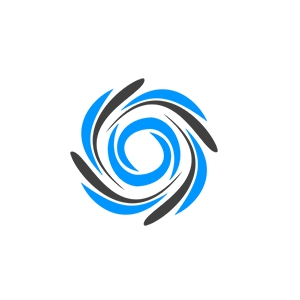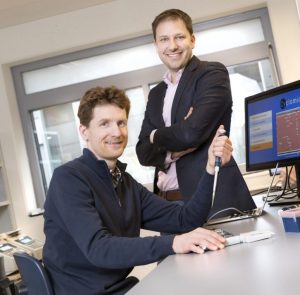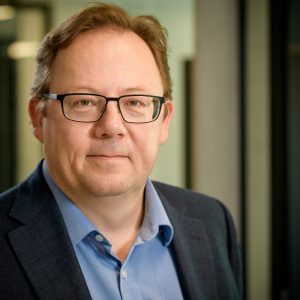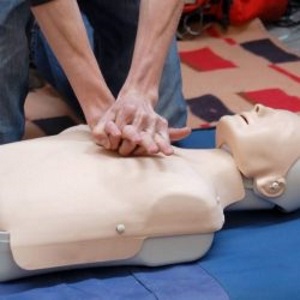Cyclomics

Scientists who don’t choose a paper but explore whether their invention could be the basis of a business. That is the route for Cyclomics, Wigard Kloosterman and Jeroen de Ridder’s startup.
In autumn 2017, with Cyclomics they won the Venture Challenge, a competition for startups in life sciences. At the start of that same year, they discussed the idea for the business during a lunchtime walk. Kloosterman is a research group leader and molecular biologist. He studied the DNA of tumors based on DNS sequencing technology at the Genetics department. De Ridder has a background in bioinformatics: “With the arrival of the nanopore sequencer, we asked ourselves whether we could do more with it.” With that technology, a machine pulls a DNA molecule through a microscopic hole – a nanopore – and reads the DNA sequence at the same time. “We came up with the idea to identify DNA molecules in blood tumors. Then we could see whether someone has a tumor by looking at their blood. That is one of the major questions in oncology: how can we identify tumors early and non-invasively?” Kloosterman: “We are dealing with tiny amounts, of only a dozen molecules. You need an excellent sniffer dog for that and that’s the nanopore sequencer. We have conceived a new application for existing technology.”

‘We have invented a new application for existing technology.’
Wigard Kloosterman – Cyclomics
Patent attorney
After the initial experiments, it appeared the invention had potential. Then, by chance, they received a request from the UMC: think about which invention could be marketable. They got to work pitching their idea that, logically, gave them lots of constructive criticism enabling then to fine tune their story. At the time, they also contacted a patent attorney at V.O. Kloosterman: “He understood the essence very quickly, which meant he could readily conclude on its patentability. He forced us to separate the main issues from the side issues and helped us to define what the true invention was.”
Investors wanted
“As a scientist, you spread your knowledge through articles,” says De Ridder. “Really you are handing it over to someone else. But most of the time, not much happens after that. Therefore, you have to do it yourself if you want to have an impact, for instance with a business.” Kloosterman: “The Venture Challenge was a pressure cooker of two 3-day sessions when all kinds of questions popped up. Where can you create value for society? Who will the customer be? The doctor or patient? How can you earn money with it? What is your actual product? It was a coaching process with a competition. Here, you mainly learn about pitching to investors.”
Now it starts
The first investors have come forward. De Ridder: “We now have to build a business that attracts investors. We need a lot of money to make a solid product that also works in a clinical environment. There is an incubator environment at the UMC, where we will be working one day a week, and a fulltime postdoc. After that, we’ll need additional staff for more validation work. Now we have to show it to the world.”


